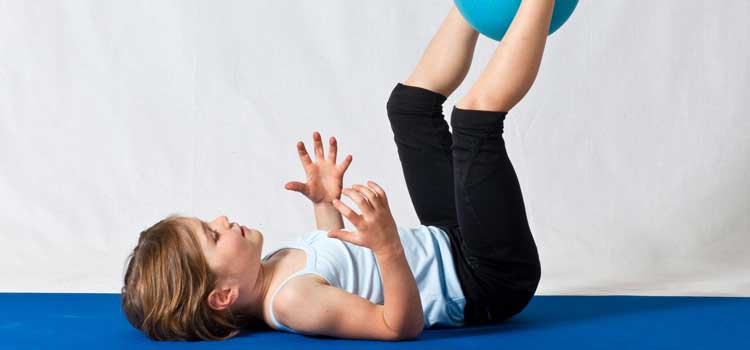As camp professionals, we all know that the two most important elements of every activity are safety and fun. Adhering to the safety measures at your camp is pretty cut and dry. The fun is a bit more complicated because campers experience it in different ways for a variety of reasons. Age is one factor to consider, and it’s important to plan specific summer camp activities for young kids. My favorite approach is to decrease the competitive aspects of certain activities when running them for young kids at summer camp.
When you make adjustments to the activities you plan and run for younger campers, you open up a new world of interests and you may introduce a camper to something—a sport, a craft, or a skill—that will become a lifelong passion. The summer camp activities for young kids that work for one camp may not work in the exact same way for another, but experts at Penn State have found that by teaching activities in a less competitive way, children will stay focused and be more willing to continue to participate. It will likely take you time to develop the exact formula that works for you, but here are my tips and tricks for how to plan and run summer camp activities for younger campers.
Hide the scoreboard
Keeping score is an obvious element of a competitive activity, but in my experience younger campers are unlikely to focus on this detail. They just don’t seem to remember the score of bunk four’s Tuesday soccer game in week two of camp.
Instead of keeping score in the traditional way during team sports, set fun and creative goals for each team to accomplish. These goals could be passing the ball a certain amount of times, making sure each person on the team tries to score, or coming up with a creative team name and cheer. Moving away from score-keeping can eliminate thoughts such as, “I want to win,” and shift the mindset to, “I want to help my friends achieve our goal.”
I’ve found that using this approach, campers are also less likely to sit on the sideline and not participate for fear of being less skilled. As the activity leader it also helps you avoid the frustration campers feel if they lose. For any typical team-based activity or sport, use your imagination and come up with these types of challenges. They stimulate campers’ creativity while reinforcing teamwork and motor skills.
Be flexible with rules
Do you know what’s better than a five-on-five game of basketball with a group of five-year-olds? An eight-on-eight scramble with multiple hoops where no one scores but everyone is laughing and playing together.
One reason to avoid too many rules in camp activities for young kids is that some may be confusing. If you’ve ever tried explaining the offside rule in soccer to a group of kindergarteners, you know what I mean. On the other hand, I’ve found that these campers gravitate to games that allow them to break all the traditional rules. The joy they get from playing a made-up game that is a mix of soccer, kickball, and gymnastics is amazing. Stressing out about too many rules isn’t just a difficult task for you, it will also slow the flow and lead to bored and potentially unhappy campers.
Incorporate animals

There are some exceptions, but in my experience it’s a pretty reasonable assumption that most kids love animals. Something as simple as letting campers pretend to be animals while playing a game will get them excited to show off their creative interpretations, and take the focus away from winning or losing.
Classic activities such as Fantastic Mr. Fox or Red Rover are two examples of games where running is required. Add in this animal element and you can get your group soaring like birds across the field or hopping like kangaroos through the Outback. Double the fun and have them make animal noises and set the scene with a description of the habitat they’re in.
While older campers may be able to maintain focus by just running back and forth, this can sometimes bore a younger camper. With summer camp activities for young kids, incorporating animal impersonations can help them stay engrossed in the game and never want to stop. Check out the rules and explanations of some of my favorite games that work perfectly with animal impersonations.
Instead of keeping score in the traditional way during team sports, set fun and creative goals for each team to accomplish. These goals could be passing the ball a certain amount of times, making sure each person on the team tries to score, or coming up with a creative team name and cheer. Moving away from score-keeping can eliminate thoughts such as, “I want to win,” and shift the mindset to, “I want to help my friends achieve our goal.”
Combine skill-building and fun
Looking back at my childhood, I can’t remember the first time I correctly threw a ball. If I were to guess, many of you reading this do not remember that moment either. On the other hand, I have vivid memories of big group activities that incorporated skill-building in fun ways. One that comes to mind is playing kickball where every ball was in play whether it stayed in the lines or not. I still learned the basic skills of the game, but I didn’t experience any disappointment if I didn’t excel right away.
Teaching new skills through camp activities is important and rewarding. In my experience, if these skills are built in encouraging ways, campers have more fun and often develop lifelong interests. Start your activity with some helpful tips and tricks so the campers have an understanding of the skill, such as the correct motion to use when throwing a baseball. Then use these skills to play a fun relaxed game. Parents send their children to camp to learn new skills, but for younger campers they’re not expecting them to become all-stars after one session or summer. What they do expect is that their kids will come home raving about a new game they played with their friends.
When in doubt, dance it out
Waiting in line may be one of the most boring camp necessities for young children. While waiting for someone to take their turn, you will notice 13 other kids looking in 13 different directions and straying out of line. This is followed by the dreaded complaints of “I’m bored,” at which point you’ve likely lost the ability to get your group to do what you’re asking of them. My approach is simple—instead of having the campers wait in line quietly, turn the line into a dance party.
Play some music, get them moving, and keep them busy; this will help them focus on the directions that you’re giving them. If some campers are hesitant to dance, you can give them separate actions such as doing jumping jacks or stretches. I love this approach because it gives campers something to look forward to while waiting their turn, and nothing beats breaking it down and showing off your moves!
If you’re not having fun, they’re not having fun

Younger campers are more likely to respond to you if they see you model the behavior you’re expecting from them. I’ve found this to be true, and much more effective than simply asking them to listen to me or my team describe what I’d like them to do. This is especially true for younger campers when it comes to fun! If you are engaged in an activity, your campers will pick up on that and have a great time themselves.
On those 95-degree days where all you want to do is curl up under a shady tree and take a nap, trust that your campers want to do that too. The best way to snap them out of that funk is to show them how much joy you’re feeling. Being a facilitator of fun means bringing that energy and excitement to every activity and injecting the group with the desire to play. I’ve found that young children, especially those under the age of five, are visual learners and they notice everything. If I’m in a grouchy mood, they know. No matter the activity, smile your biggest smile, have a blast at camp, and your group of younger campers will too.
Make adjustments to summer camp activities for young kids
Attending summer camp is an experience that kids will hold onto dearly for their entire lives. Hearing the sounds of campers laughing and playing together is a signal to you that you’re succeeding. While older campers may have a more robust understanding of games, rules, and lessons, younger kids are more likely to lose focus the more complicated you make activities. Instead of trying to force a dynamic that isn’t working, take time to adjust the activities to suit these campers’ needs.
By using the tips and tricks above related to activities for younger campers, you will enhance the camper experience. These approaches will help you create lasting memories and the result can be kids returning for more fun each summer.
We want to hear from you! Let us know in the comments your ideas for how to jazz up camp activities for younger campers.
Matt Martin is the Associate Director of Camp Kef at the Kaiserman Jewish Community Center. He spent his first two summers out of college as a program coordinator at Camp Deeny Riback in Flander, New Jersey before moving down to the Philadelphia area. Matt is a lover of New York Sports, specifically the Mets and Jets. He is a self-professed Star Wars nerd and enjoys spending time hiking through nature trails.
